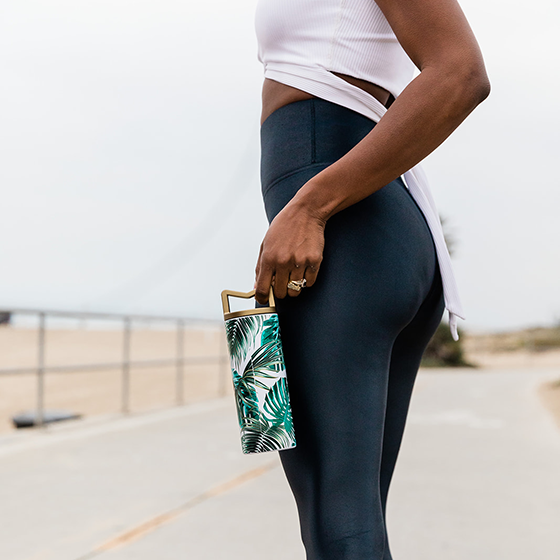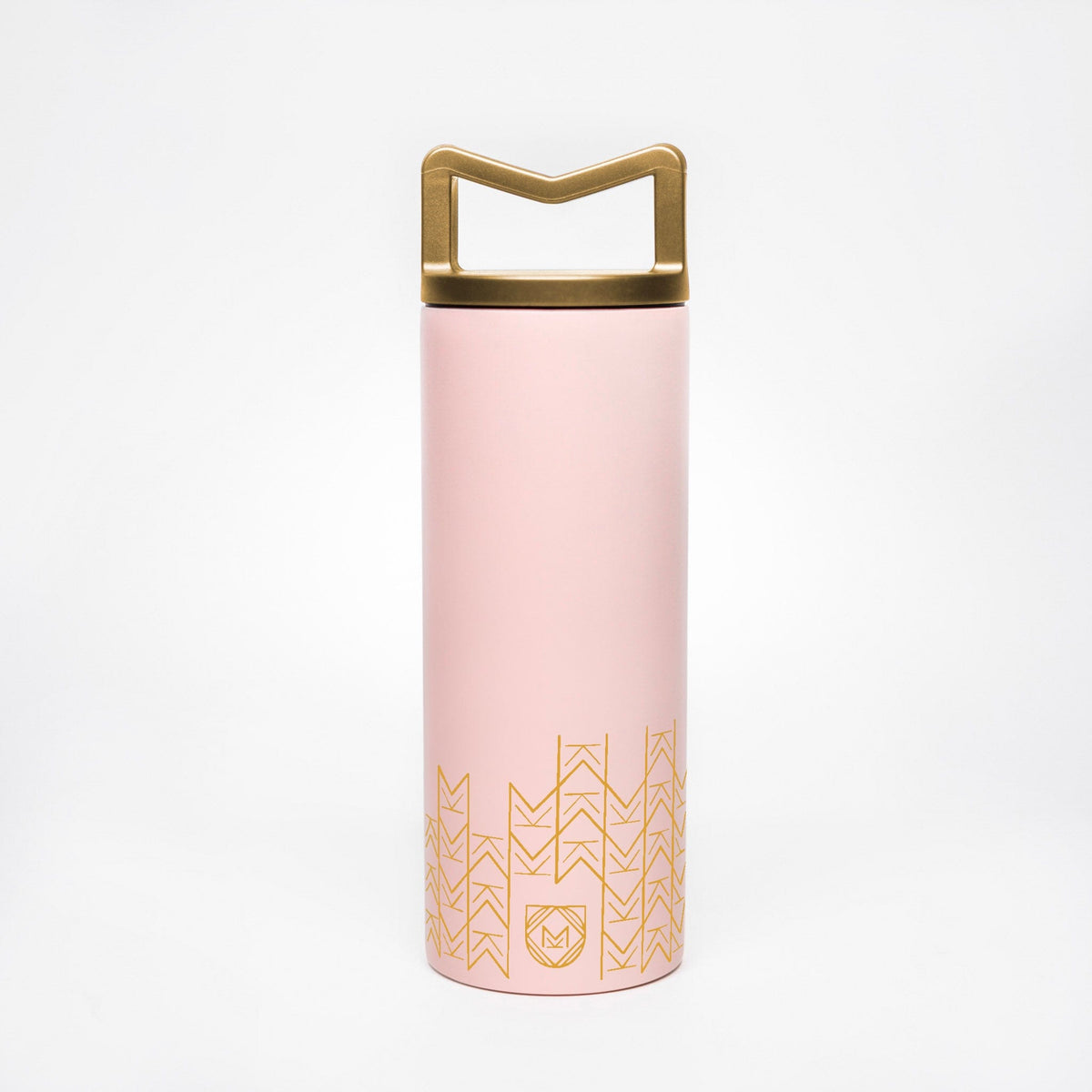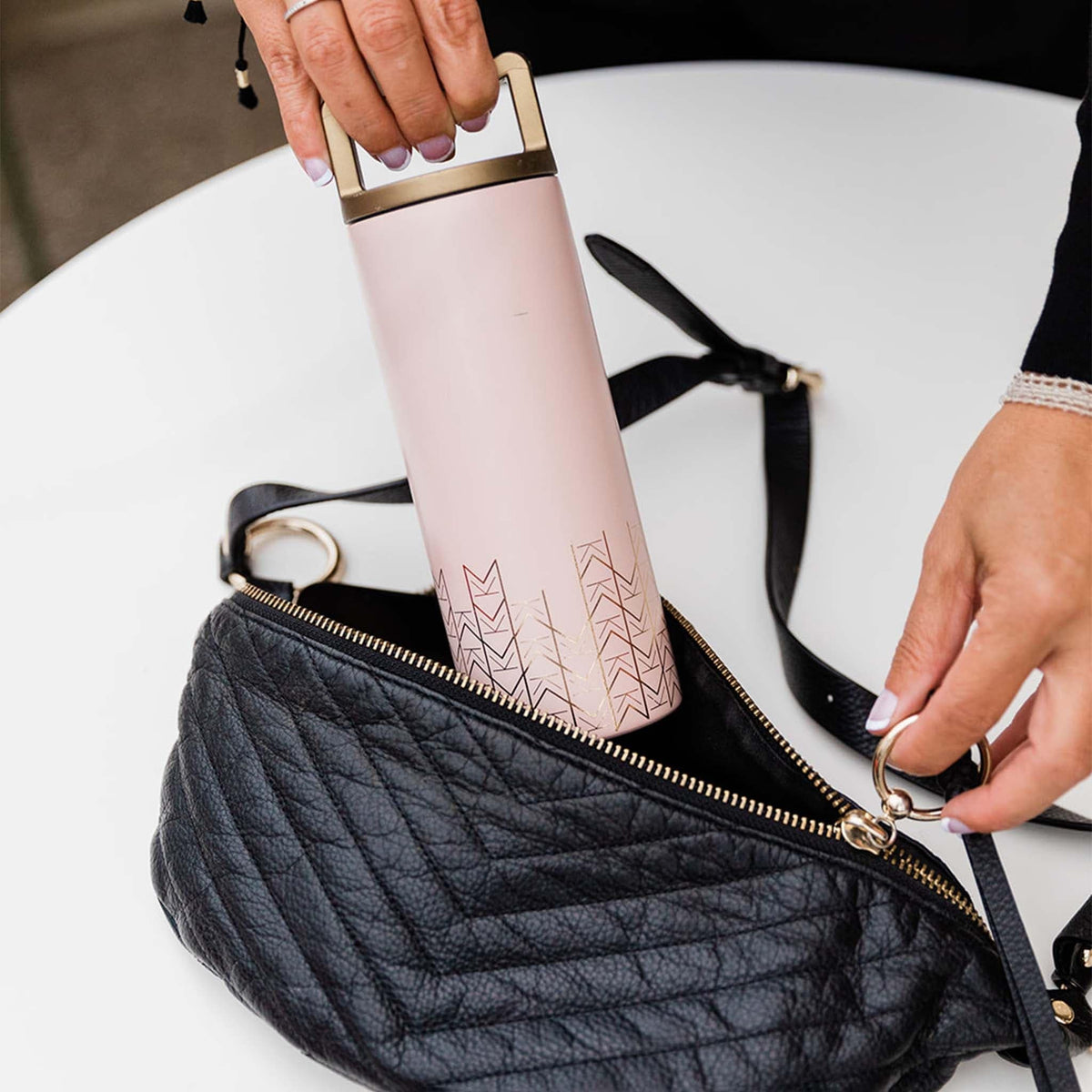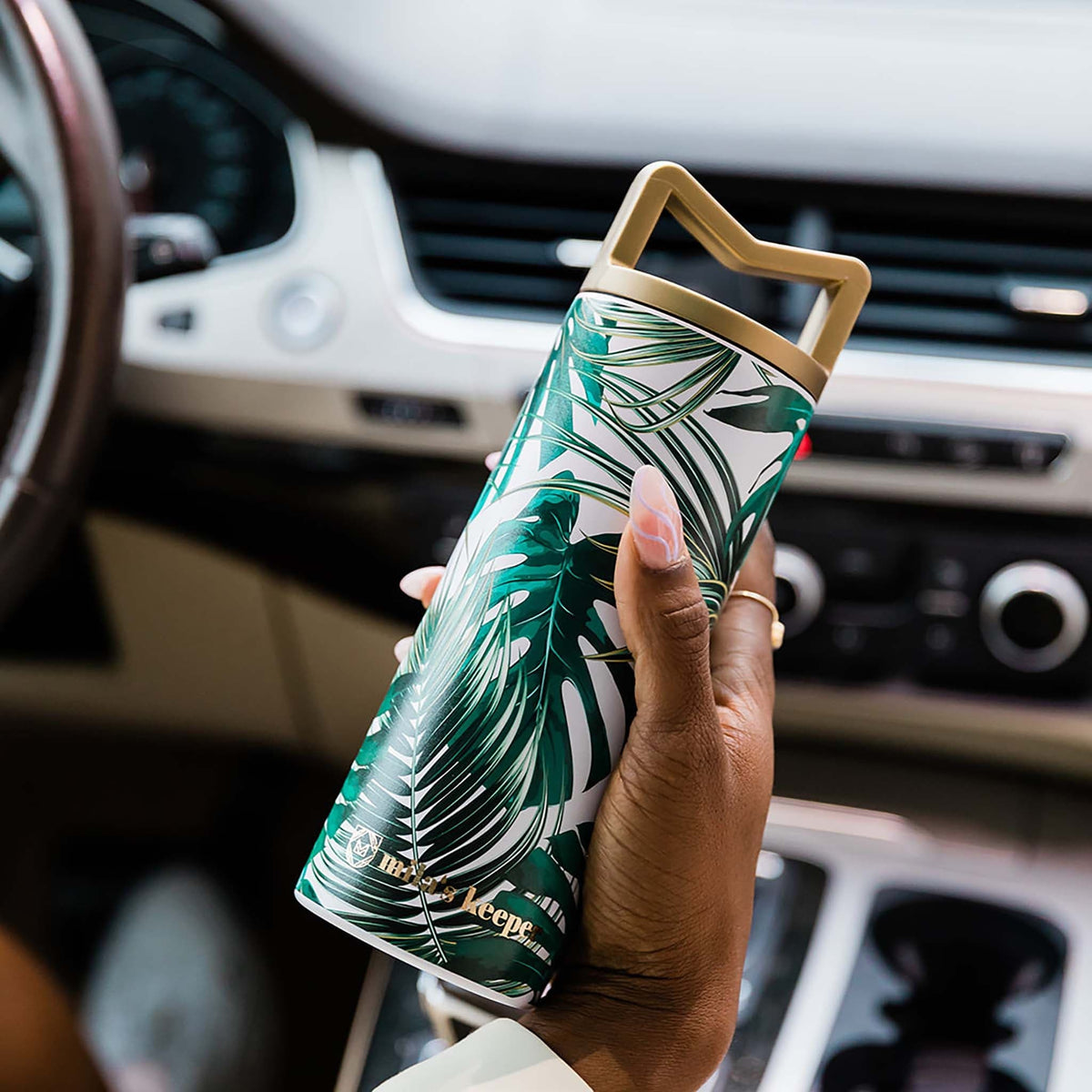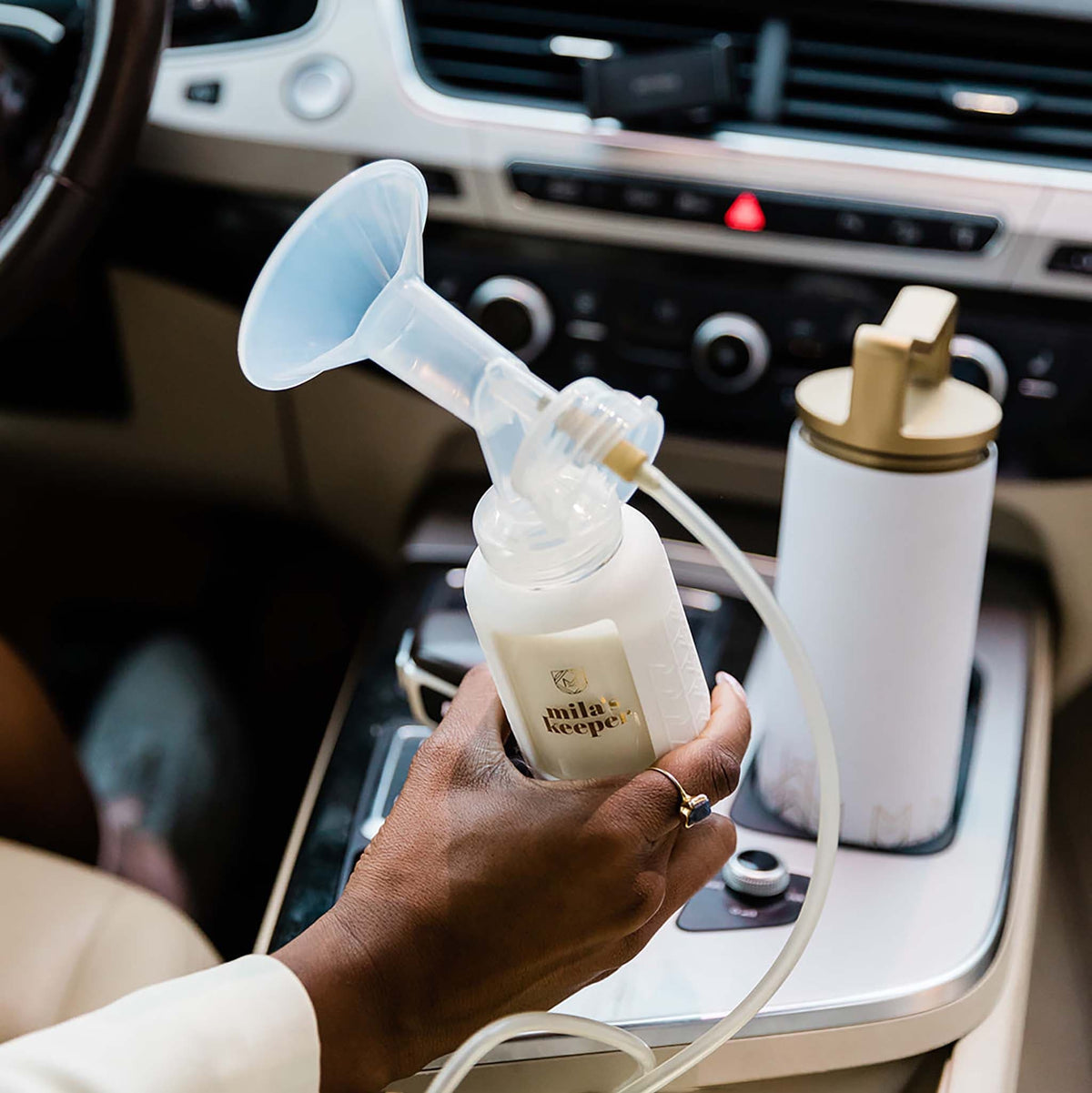Written by Andrea Reyes and Lara Vu
You may have thought that breastfeeding is a choice, but for many underprivileged African-American moms, it’s a luxury.
According to the CDC's Breastfeeding Report Card, published in 2020, 84% of moms breastfeed their children on average, yet only 76% of black women nurse their little ones. This disparity is echoed in the CDC Morbidity and Mortality Report, where only 44.7% of black moms are still breastfeeding at six months postpartum, compared to over 62% of white moms. This is not only a black and white issue - black women breastfeed at a lower rate than any other racial group.
By no means is this disparity a novel phenomenon - it was first recognized decades ago, and there’s been little resolution to date.
Why the Racial Disparity in Breastfeeding is Important
The breastfeeding disparity is an issue of astronomical importance, being that it is not driven solely by individual preferences. In the U.S. people are led to believe that they have equal opportunities, but this may not be the case for black women, especially those in underserved communities.
The World Health Organization (WHO) and UNICEF recommend that newborns are breastfed after one hour of birth and exclusively breastfed for the first 6 months. After that crucial point, these two organizations recommend that moms begin introducing solid foods and continue breastfeeding for up to 2 years or longer. The American Academy of Pediatrics recommends moms to breastfeed exclusively for the first six months and then continue breastfeeding from six months to a year while introducing solid foods. Following these recommendations leads to the best health outcomes for both mom and baby.
When a woman wants to give their baby the healthiest possible nourishment and cannot, that’s a signal that we need to do something.
Black Breastfeeding Issues Fueling the Disparity
Let’s get into the challenges that stop African-American moms from breastfeeding their little ones. Per the National Institute of Health, black mothers tend to be single, younger, financially unsound, and undereducated. All of these factors and more contribute to low breastfeeding rates among Black women. In the section below, we’ll dive a bit deeper into each of these black breastfeeding issues.
History and Wet Nursing
There is no denying that history plays a role in the challenges of breastfeeding for black mothers. In slavery times, black women worked as wet nurses who breastfed white women’s babies instead of their own. This practice stopped shortly after slavery was abolished in 1865, but the negativity associated with this practice still negatively affects some of today’s black women. Here’s how. The concept of wet nursing is directly associated with forced labor from older black generations, leading many to reject the idea of breastfeeding at all. This disdain for breastfeeding was passed down through generations, influencing black women belonging to the more recent generations. This is why some black women today won’t even consider breastfeeding.
Being a Single Mom
Census.gov reports that a staggering 46.3% of Black children lived only with their mother, compared to 13.4% white children, 7.8% of asian children, and 24% of hispanic children. In addition to that, in the year 2020, 72% of moms were either working or actively searching for work.
When women are raising children alone, they are often working full time jobs while also responsible for all aspects of infant care which brings additional time constraints and challenges to breastfeeding. Considering the competing responsibilities of single moms, it’s no wonder breastfeeding becomes yet another thing they don’t have the time or energy to do.
Having Babies Young
Black women are among the youngest mothers. Per the CDC’s NCHS 2016 Data Brief, the mean age of black women when they had their first child in 2014 was 24.2 years old, compared to 27 for whites, and 29 for asians. Young mothers, in general, are learning how to figure themselves out while simultaneously trying to take care of a tiny new life. Also, in their younger years, women may be concerned about how their breasts could look post-breastfeeding. These things can stop breastfeeding long before it begins.
Financial Instability
https://www.census.gov/library/publications/2021/demo/p60-273.html Between 2019 and 2020, Black people had a poverty rate of 19.5 percent, which is astronomical compared to that of non-hispanic whites (8.2%) and asians (8.1%). The situation gets even more bleak when you consider the poverty rate of households with a black mom as the breadwinner: 31.7%. A lack of financial stability is presumed to encourage people to breastfeed, but that’s not always the case. Breastfeeding comes with several expenses, from nursing bras and shirts to breast pumps and breast milk storage supplies. These things very quickly become expensive and deter many Black women from breastfeeding their little ones.
Lack of Breastfeeding Education
Breastfeeding does not come naturally to every mom, and it can be particularly intimidating for first-time moms. Without sufficient breastfeeding preparation, black moms often feel uncomfortable with the idea of breastfeeding.
Not only that, but some women are undereducated to the point that they are unaware of the many benefits of breastfeeding. Here are some of the breastfeeding myths that permeate the black community:
- Breastfeeding is too much to handle. They believe that it’s too hard, so they end up not even trying.
- Most babies are fed formula. While this may seem so, the majority of children are not formula-fed. Most babies started off being breastfed- more than 80% in 2017.
- Formula is just as healthy as breast milk. Formula manufacturers sometimes use deceptive advertising that makes moms think that their product is just as healthy as natural breast milk.
On top of believing breastfeeding myths, many black women don’t know that breastfeeding lowers their baby’s risk of developing diabetes, results in fewer ear infections, and curtails digestive upset. They also don’t know that breastfeeding results in better overall health outcomes and fewer hospitalizations. In the absence of adequate breastfeeding knowledge, moms don't give breastfeeding proper consideration.
Inadequate Breastfeeding Support
It takes support and consideration from others to breastfeed. After a working woman gives birth, there will come a time when she’ll have to go back to work. Should she continue to breastfeed, she’ll have to breastfeed at work. The problem comes in when we consider that most women have nowhere at work to pump breast milk.
Black women are more likely to work at a company where breastfeeding breaks and accommodations are not provided. There’s a stigma surrounding breastfeeding in public, another issue of importance, which makes it “disrespectful” or “disgusting” for a woman to pump around others. That prompts determined working moms to go out to the car, squeeze into a utility closet, or even go to the public bathroom to pump their breast milk.
It’s demoralizing that employers aren’t adequately supporting something so natural and life-giving. Unfortunately, work-related breastfeeding support is even harder to find in low-income areas and at low-paying jobs.
Poor Quality Hospital Care
Since Black moms often live in low-income communities, they also receive low-quality maternity care. This statistic from the National Institutes of Health shows that hospitals are several times more likely to formula-feed black babies than babies of any other race. When hospital staff isn’t actively encouraging black women to breastfeed, there’s little hope for them to choose it on their own.
Systemic Racism
We’d be remiss if we didn’t bring up systemic racism, the common thread in the majority of the issues in this section. Countless laws and policies disqualify black people from having the same opportunities as their white counterparts.
There’s no single barrier that stops black women from breastfeeding as much as other moms. It’s a combination of multiple factors that create a roadblock that some black women are simply unable to overcome. When you consider all of the issues raised in this section, there’s no question that something must be done.
How can we help close the gap of the breastfeeding disparity?
We understand the issues, and now it’s time to look at the solutions. With so many things against Black moms, it will take a concerted effort on various fronts to close the racial disparity gap in breastfeeding. In this section, we aim to present actionable solutions to the problem.
Give Black Working Moms Breastfeeding Support
Breastfeeding support can significantly reduce the number of black women who choose not to breastfeed or stop breastfeeding prematurely due to lack of job support. Section 7(r) of the Fair Labor Standards Act makes it mandatory for employers with more than 50 employees to give employees adequate time to pump breast milk and make a room available for the same purpose. Sadly, the law lists only one specification for the “breastfeeding” room - it must not be a bathroom. This means that the broom closet is fair game - unacceptable. And on top of that, many black women work at companies that are exempt from the law, making it useless for millions of black nursing moms.
We need more inclusive legislation that requires all companies to provide breastfeeding accommodations and abide by stricter requirements. Luckily, the PUMP for Nursing Mothers Act is on the horizon - it expands nursing protections to more women. It also incorporates more requirements for employers (paying moms if they do any work while pumping, making sure the “breastfeeding” room meets specific requirements, and more). It creates a better overall nursing experience for working moms. The legislation passed the House in late October, but it could be a while before we see this law fully approved.
The passing of this law would open up a ton of opportunities for black women to choose to breastfeed and stick with it for as long as they want to. But in the absence of this law, there’s little hope of turning the breastfeeding racial disparity around.
Other Ways to Bolster Breastfeeding Support Amongst Employers
Here are some ways that state leaders can help to increase adoption of the current legislation as well as the laws to come:
- Publicize and promote breastfeeding legislation so that more employers will become aware of the legislation and be encouraged to comply. Far too many employers have no idea that breastfeeding legislation exists.
- Let’s face it - most employers will only do what benefits them. So, showing them how allowing nursing moms to pump in peace will help their businesses could be helpful. This can be done by distributing educational pamphlets, videos, and other materials showcasing the benefits of breastfeeding for employers.
- Publicly recognize employers that go above and beyond in supporting breastfeeding moms in underserved communities. Grants and monetary rewards are also great incentives.
Push Breastfeeding Education at Doctor Appointments
Generally, people go to Google to learn about breastfeeding. While it may be helpful from time to time, nothing beats advice coming directly from a medical professional - your medical professional. Prenatal appointments are the opportune time to learn about breastfeeding benefits, drawbacks, costs, etc. So, providers should bring up the topic of breastfeeding to black moms and be ready to answer any questions they may have about it. Without reliable information about the ins and outs of breastfeeding, black women have no chance of making an educated decision on the matter.
Because there’s a learning curve to breastfeeding, patients may come across many issues that threaten to derail their breastfeeding efforts. So, it’ll be helpful to inform patients of resources that may be available to them, including lactation counseling and breastfeeding forums. There are many free resources out there for moms, but if they don’t know about them, they can’t possibly get the help they need. And for black women struggling with financial hardship, directing them to programs that offer free breast pumps and supplies will help offset the cost of pumping.
During your conversations, ask helpful questions that’ll help to illuminate breastfeeding myths that keep African American moms from even considering breastfeeding. Here are some great questions to ask:
- What do you know about breastfeeding? If she responds with myths or incorrect information, be ready to correct her and show her the facts.
- What is your biggest fear about breastfeeding? Her answer presents an opportunity to talk through the issue and put her mind at ease.
Medical providers involved in prenatal and postnatal care should take every opportunity to counsel black mothers so that they’ll feel confident enough to breastfeed should they take that route.
Plan Ahead, Pump Smart, and Store Well
In a survey of 2000 moms, conducted by Seraphine Maternity and OnePoll, 1 in 3 moms stopped breastfeeding because they were returning to work. This is one of the biggest reasons why black women don’t continue breastfeeding. Pumping at work is much harder than it needs to be.
Though legislation plays a sizable role in how easy it’ll be to pump at work, African American women should also take steps on their own; plan ahead, pump smart, and store well. Here are some tips to make it easier to pump at work.
- Moms-to-be should plan out their lactation needs with their manager before the baby comes. Employers are often better able to assist moms if they get advance notice regarding the need for lactation accommodations. Having the talk before going on maternity leave is best. That should leave enough time for the mom and the employer to make arrangements regarding where pumping will take place, how much time should be allotted to pumping, whether the time will be paid, etc.
- Moms should get educated on the breastfeeding laws and regulations that apply to them. It’s imperative for black moms to get familiar with federal and state breastfeeding laws applicable to their working arrangement. When moms know the law, they can call out their employers or even take legal action after being treated unlawfully.
- Get a good breast pump. The Affordable Care Act (ACA) now requires all insurance companies to cover the cost of a breast pump. Make sure you get an electric breast pump with double flanges to reduce the amount of time you need to spend pumping.
- Use a good breast milk cooler: Most breast milk cooler bags on the market don't do what is necessary to bring down the temperature of your breast milk and keep it cold, so you most likely will need access to a refrigerator. There are exceptions such as the Mila's Keeper Insulated Cooler that doesn't require a freezer when in use. This is especially important where refrigerators are not available or easily accessible at work.
- Moms should get a portable washing kit to make cleaning their breast pump easy and quick. The CDC recommends washing your pump after every pumping session. If you don’t have the right breast pump cleaning equipment, cleaning your breast pump components will not only be a drag, but it could take a very long time.
- Moms shouldn’t underestimate the importance of adequate breast milk storage. Breastfeeding moms need not only be concerned about how to pump - they should also be careful of how they store their pumped milk. It doesn’t take long for breast milk to spoil. According to the Mayo Clinic, freshly pumped breast milk goes bad within 6 hours in a cool room and 4 hours in a hot room. No mom wants to feed their little one tainted, spoiled milk. The answer? A good breast milk cooler bag.
We also encourage moms to pair their cooler with the right bottle. For women who haven’t heard of glass storage bottles for breast milk, it’s essential to know that they are the healthiest option for babies. They contain no harmful chemicals that can be leached into the breast milk.
For the purest, freshest breast milk, ensure you’ve got a quality breast milk cooler bag and storage bottles.
Support Black Breastfeeding Organizations
There are tons of breastfeeding organizations that have tasked themselves with closing the racial disparity in breastfeeding. Anyone can help to support these organizations’ initiatives by donating funds, volunteering, or simply spreading the word about them.
Here are some organizations that focus on black breastfeeding:
- Reaching Our Sisters Everywhere (Rose)
- Black Mothers Breastfeeding Association
- African American Breastfeeding Network
- Soul Food For Your Baby
An Interview with a Black mom of three:
In the below section, you’ll hear from an African American woman about her breastfeeding experience in corporate America.
What are your thoughts on breastfeeding?
I believe that breastfeeding is a fantastic way to nourish and bond with your baby. It’s one of the most beautiful, challenging, maddening roller coasters I’ve ever been on.
Have you breastfed your children?
Yes, I have three children, and I breastfed all of them—my first for six weeks, my second for 18 months, and my third for 12 months. I am pregnant with my fourth child, and I plan on breastfeeding him/her as well.
Why did you choose to breastfeed?
When I was pregnant with my first child, my OB/GYN explained to me that breastfeeding my babies would supply them with immunity-boosting antibodies. She also showed me a comparison chart between formula and breast milk, and to me, breast milk was clearly the healthiest option for my baby. In addition to that, my mother breastfed my three sisters and I and told me how well it worked for her after she got the hang of it - I wanted to continue the tradition. So, I decided to try it.
Who or what helped you the most in being able to breastfeed your children successfully?
Breastfeeding did not come easy to me the first time. It was painful, and my breasts became painfully engorged to the point that I would cry. My mother and healthcare provider gave me tips and tricks to make the experience run more smoothly, and by the end of my first month, I felt like I was getting the hang of it.
I ran into some of the same issues and more (cracked nipples and a nipple thrush infection) with my other two girls. But the wealth of knowledge I gained the first time around, as well as the help of my wonderful OB/GYN, enabled me to overcome those obstacles.
Explain your most significant barrier to breastfeeding?
Three words: lack of accommodation.
After getting into the routine of breastfeeding my youngest child, I had to go back to work at six weeks postpartum. I wanted to pump my milk at work and continue providing my little one breast milk, but my job didn’t offer breastfeeding accommodations of any kind. I would not be allowed any time to pump at work – period. This meant that if I continued breastfeeding only at home, I would be in excruciating pain with engorged breasts that I wasn’t allowed to empty throughout the day. There was no way I could pump milk and work 40+ hours per week.
Since I needed my job to provide for my family, I made the painful decision to stop breastfeeding my first baby cold turkey and put her on the bottle. She transitioned quickly, eventually preferring the bottle over the breast. I missed out on a priceless bonding experience with her and still regret it to this day.
What could have made breastfeeding easier for you as an African American mom?
Access to pumping time and a pumping room for all moms is essential. The fact is that I am not the only mom who had to stop breastfeeding because of the absence of breastfeeding accommodations. This story resonates with a lot of women who had to make the same decision.
Employers must take action and be proactive - have a room already set up for breastfeeding moms, plan out and inform employees of breastfeeding time allowances, put moms’ minds at ease so they can feel good about pumping at work. Doing so would change so many lives for the better.
It Will Take a Village
Black moms everywhere are still choosing not to breastfeed for reasons other than personal choice, and this needs to be addressed immediately. Breastfeeding is the most nutritious way to nourish a baby, which is why every African American woman should be able to breastfeed if they want to. We hope this article has illuminated the enormous disparity in breastfeeding and encouraged you to do what you can to make breastfeeding an attainable goal for African American women everywhere. Whether you’re an employer, lawmaker, or the average Joe or Jill, there’s a part you can play.
Racial disparity in breastfeeding is reversible, but not without help from all fronts. We encourage you to do your part to facilitate change in the black community. Soon enough, we’ll be able to put this disparity in the past.
Keep Reading: 7 Reasons Why We Celebrate Black Breastfeeding Week
--
A female-designed and female-run company, Mila's Keeper is on a mission to empower women to thrive during their breastfeeding journey by offering reusable, eco-friendly breast milk storage solutions for their day-to-day needs. Get the latest tips and info on Mila's Keeper products by following us on Facebook, Twitter, Instagram, Pinterest, and LinkedIn.
Photo Credit: William Fortunato from Pexels

